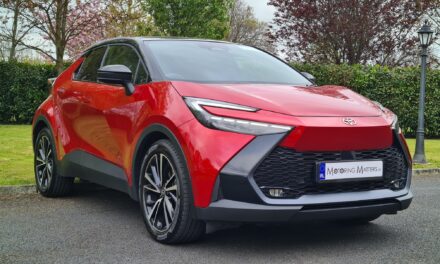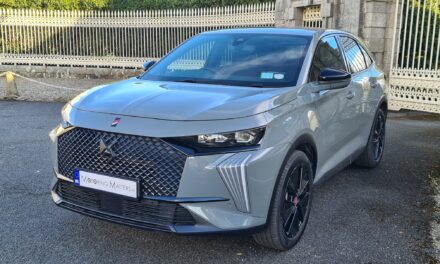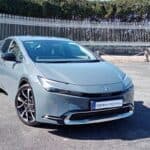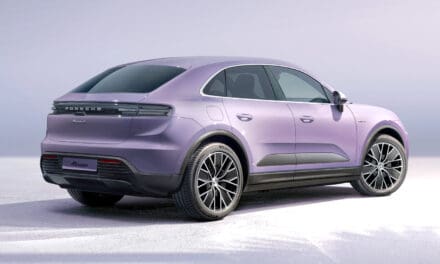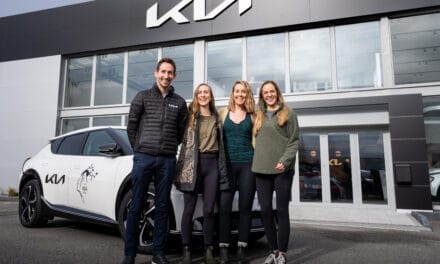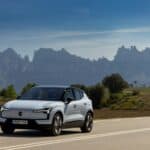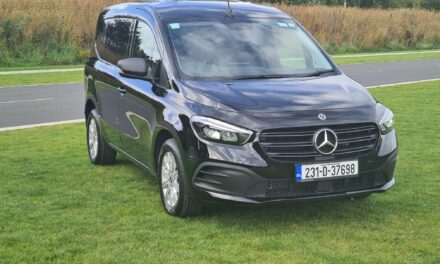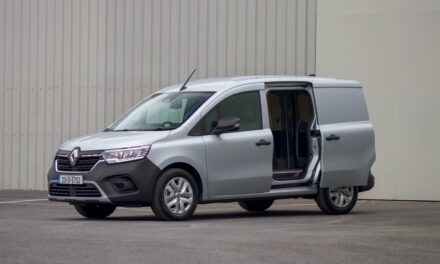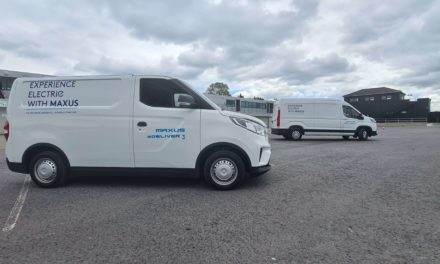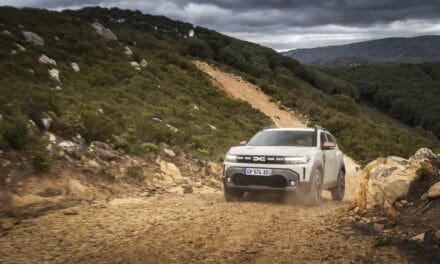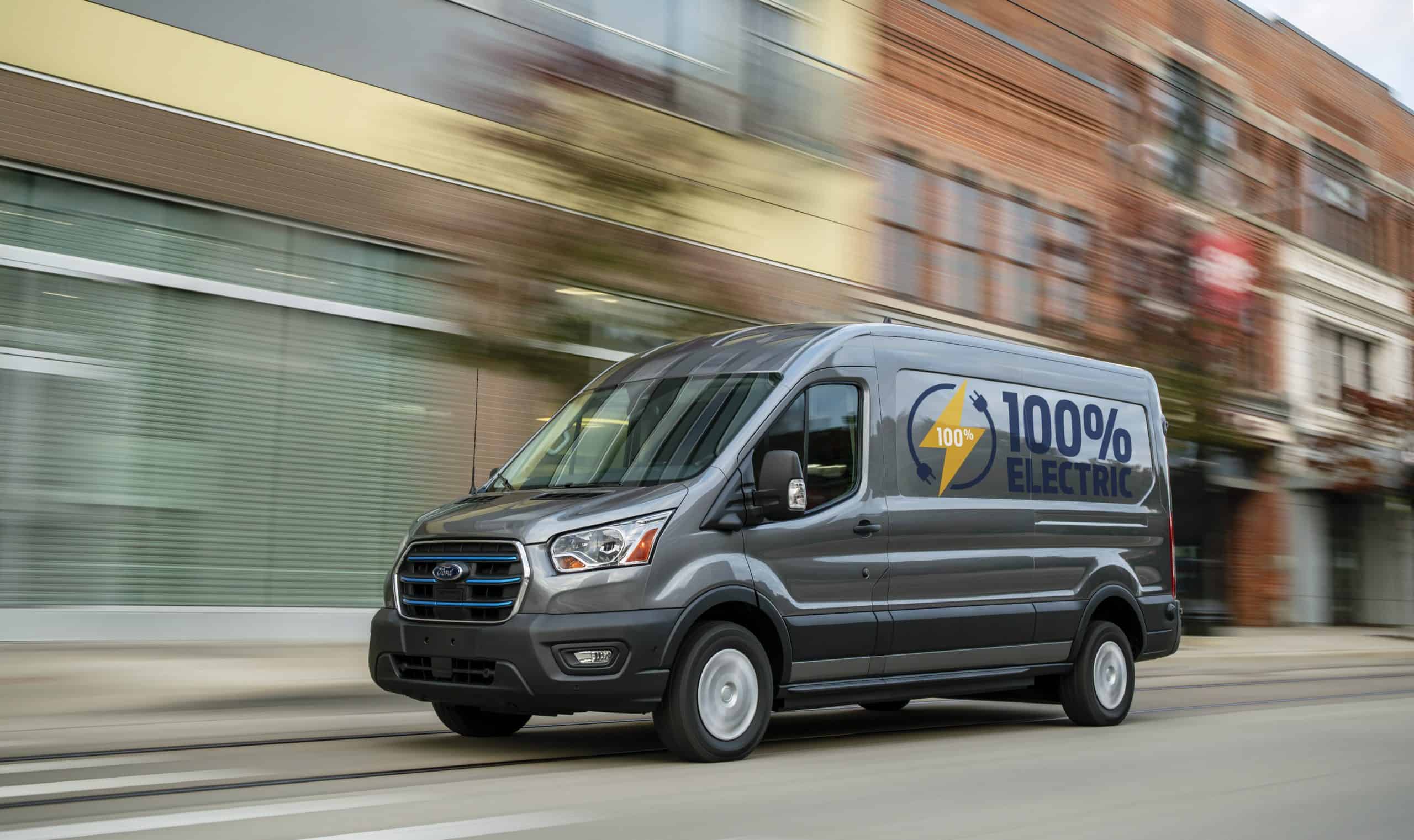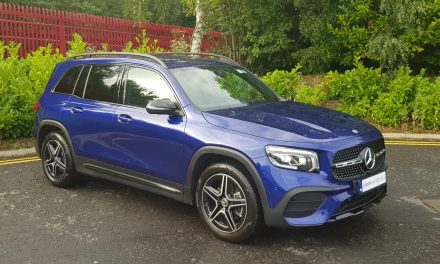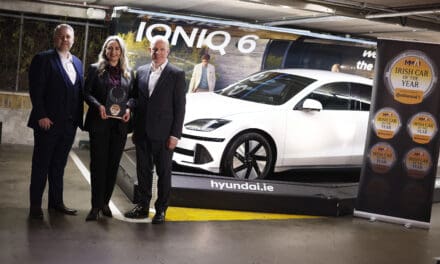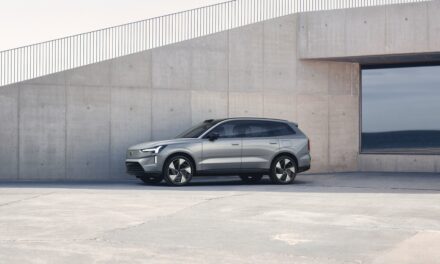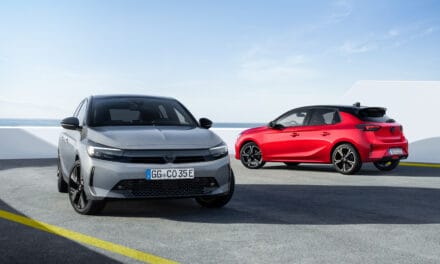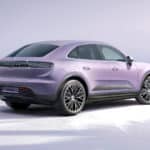
Black Friday – or Green Saturday? Ford Research Shows Shoppers Will Wait and Pay More for Eco-Friendly Deliveries.
Most shoppers in Germany and the UK would prefer to receive online deliveries transported using electric-powered vehicles, according to a new survey commissioned by Ford.
For those in the UK, 58 per cent would prefer their delivery service used an electric-powered vehicle, while this was true of 54 per cent of those polled in Germany.
More surprisingly perhaps, 49 per cent of those in the UK would be prepared to wait longer for greener deliveries, with 38 per cent in Germany also happy to receive parcels later. The number of shoppers who would be prepared to pay extra for more energy-efficient deliveries was fewer – but still totalled 28 per cent in the UK and 21 per cent in Germany.
Ford commissioned the survey of 1,000 people across the UK and Germany to better understand consumer attitudes towards electrification. 1 In light of COVID-19 lockdowns, the forthcoming Black Friday is expected to be the biggest yet, 2 driving an increase in van traffic delivering goods to customer doorsteps.
There are more than 32 million vans on Europe’s roads 3 and Ford has already begun introducing electrified versions of its best-selling vans for businesses in Europe – part of its more than $11.5 billion commitment to electrifying the company’s vehicle range.
“Shopping from home is very much the ‘new normal’ and it is encouraging that for many people, how they get their deliveries is a key concern. We’re helping delivery companies to reduce their carbon footprint with our hybrid and zero-emissions capable vans, including the upcoming all electric E-Transit,” said Dave Petts, market lead, urban electrified vans, Ford of Europe.
Ford’s Transit Custom Plug-In Hybrid van is already on sale across Europe and combines an efficient 1.0-litre EcoBoost petrol engine with an underfloor battery pack. 4 This advanced system delivers a zero-emissions range of up to 50 km and a total range of 500 km, supported by innovative geofencing technology that automatically switches the van to battery-only drive in low-emission zones. Businesses can also set their own geozones to improve air quality in sensitive locations such as schools, parks and around warehouses.
The recently announced Ford E-Transit van is a step change for urban delivery vans. It offers the same cargo space as existing diesel Transits and a targeted range of up to 350 km, enabling urban companies to work their usual routes regardless of load and weather.
# # #
1 Independent survey undertaken October 2020 in partnership with Google across two key markets – U.K. and Germany, with 1,000 respondents taking part.
2 https://www.thedrum.com/opinion/2020/09/15/strong-ecommerce-strategy-key-black-friday-2020
3 https://www.mordorintelligence.com/industry-reports/europe-lcv-market
4 Transit Custom Plug-In Hybrid fuel efficiency from 2.7 l/100 km and CO2 emissions from 60 g/km NEDC (3.08 l/100km, 70 g/km WLTP)
The declared fuel/energy consumptions, CO2-emissions and electric range are determined according to the technical requirements and specifications of the European Regulations (EC) 715/2007 and (EU) 2017/1151 as last amended. Light Duty Vehicle type-approved using the World Harmonised Light Vehicle Test Procedure (WLTP) will have fuel/energy consumption and CO2-emission information for New European Drive Cycle (NEDC) and WLTP. WLTP will fully replace the NEDC latest by the end of the year 2020. The applied standard test procedures enable comparison between different vehicle types and different manufacturers. During NEDC phase-out, WLTP fuel consumption and CO2 emissions are being correlated back to NEDC. There will be some variance to the previous fuel economy and emissions as some elements of the tests have altered, so the same car might have different fuel consumption and CO2 emissions.

